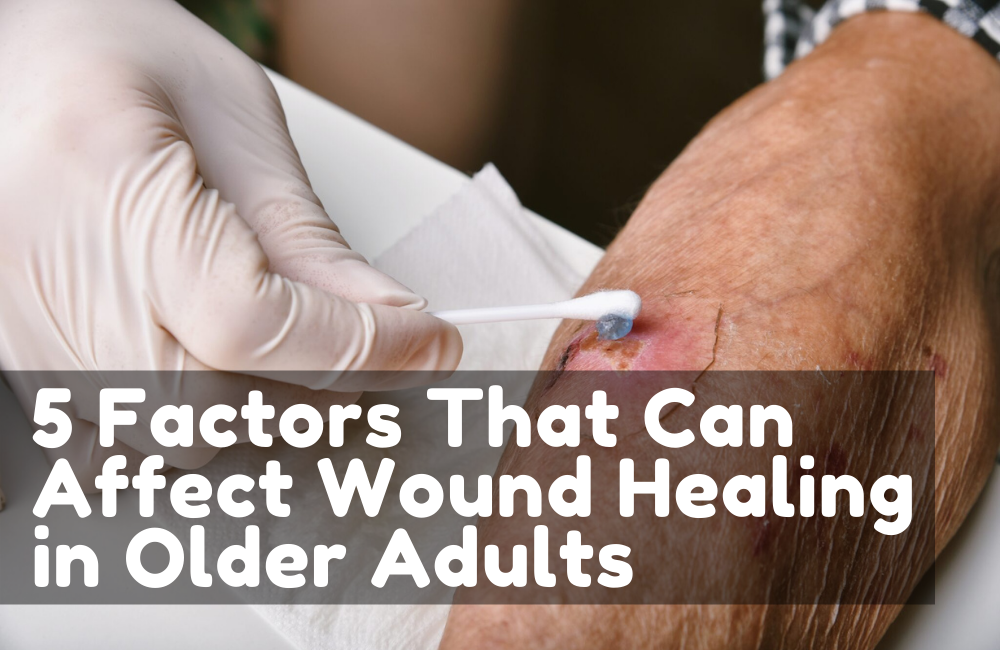UV rays, pollution, friction, tension, temperature, and a slew of other environmental variables all put a strain on the skin. It’s entirely possible to develop a wound when there is enough stress to break the skin. When this happens, your body will exert all effort and drain other vital resources away from other body processes to heal a significant wound.
However, as you may be aware, aging has an impact on every aspect of your body. The healing of wounds is slowed because of this, so older adults have a more challenging time mending them.
Apart from their age, there are several other reasons why older people encounter particular problems when recuperating from a wound.
1. Changes in Eating Habits
The body needs certain minerals and nutrients for wounds to heal correctly. People’s eating habits and the amount of food they consume vary as they become older. As a result, they may have a more challenging time healing their wounds.
These important nutrients are derived from vitamins, minerals, and antioxidants present in the appropriate meals. When recovering from an injury, it’s critical to eat well. High-protein foods, including beans, nuts, eggs, poultry, and milk, are some of the best foods to eat for wound healing.
2. Vulnerability to Chronic Wounds
Chronic wounds are those that take a long time to heal or do not heal at all. They are a danger for older individuals due to underlying health issues. It’s better to have wound care administered at home to reduce the threat of developing a chronic wound. A competent nurse will ensure that the dressing is changed appropriately and that the wound is kept clean. This guarantees a full recovery and a much lower chance of developing an infection.
3. Medication
If an older person is undergoing therapy, they may be receiving prescription drugs that interfere with wound healing or negatively influence it. Nonsteroidal anti-inflammatory medications, such as aspirin and ibuprofen, are commonly recommended for arthritis and available over the counter and might interfere with the inflammation stage of the healing process. Anticoagulants can cause blood clotting to break down, while immunosuppressants can weaken the immune system and increase the risk of infection.
4. Skin Dryness
Patients with dry skin, particularly senior adults, are vulnerable to skin lesions, excoriations, infection, and thickening due to scratching and rubbing. As a result, the skin has a difficult time healing correctly.
5. Blood Circulation
Good blood circulation is another factor that aids wound recovery. Unfortunately, it might be challenging to move about comfortably when you have a wound. Furthermore, poor circulation is sometimes exacerbated by aging and harmful behaviors such as poor eating habits, drinking, or smoking.
It’s best if your loved one receives assistance and encouragement when moving about with the support of a home health care team. This improves circulation and speeds up healing by getting the blood flowing.
Conclusion
The skin of older adults is thinner, and they may have additional health issues that delay the healing process. As previously said, numerous factors may make people more prone to receiving wounds and aggravating their condition. Infection, dermatitis, edema, and hematomas can occur if wounds are not adequately cared for. This is why having a home health care service accessible to change dressings and care for the damage is a wise option.
Whether you are interested in home health or hospice or you’re looking for senior health services in California, Bridge Home Health and Hospice can accommodate you. We provide home health care and hospice services with a patient-centered approach. Contact us today to learn more about what we can do to help.

